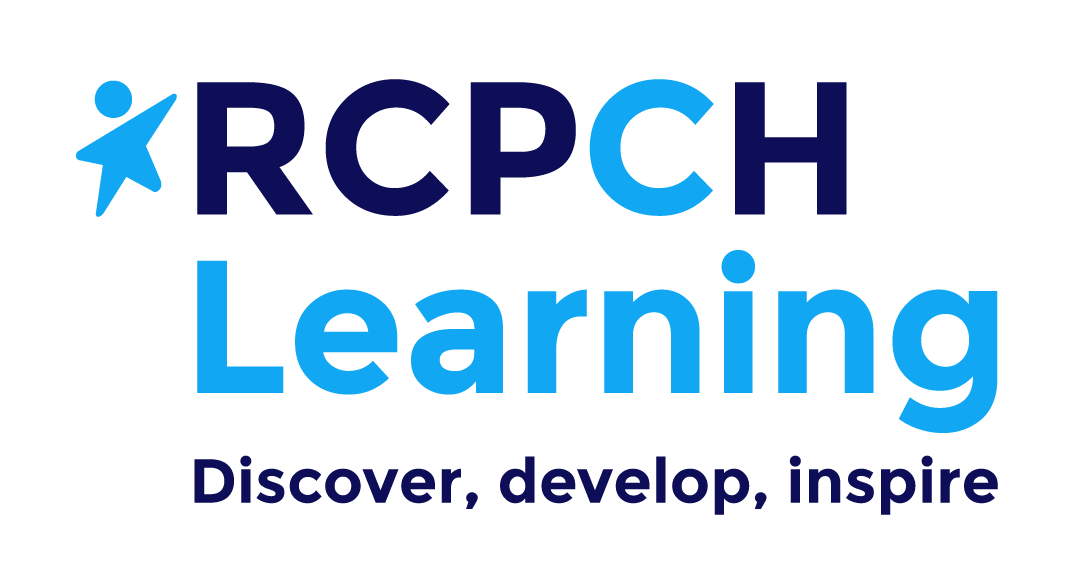Length
4.5 hours in total
Target Audiences
- Trainees, Academic Clinical Fellows, Foundation Doctors and PhD Students
Self paced
Work through the module at your own pace.When you have completed the module, you can return at any time to re-review any of the sections.
Free
Log in with your account
About this course
Overview
The Research for Non-Academics Day is a new virtual event consisting of workshops and talks targeted at members of the College with little or no experience in research.
This page has been provided as a platform for interested viewers to enhance their learning by utilising the workshop clips from the event.
Workshop video summaries:
How to get published without doing any research
Duration: 50 minutes
Summary: Workshop focusing on outlining the many ways individuals can produce content for their CV/ portfolio without conducting formal lab-based research.
Getting Involved with NIHR Portfolio Research
Duration: 45 minutes
Summary: An explanation of what NIHR Portfolio Research is, examples, current opportunities and how to get involved.
What is sponsorship
Duration: 50 minutes
Summary: Outlines what sponsorship is, how it is relevant to research, how to gain / seek sponsorship, how to navigate the issues which hinder new researchers and what research/ studies can be conducted without formal sponsorship.
Patient Safety – PPI & QI
Duration: 45 minutes
Summary: Covering how to come up with research that leaves an impact on patient and PPI & QI related discussion.
Golden Tips for Critical Appraisals
Duration: 70 minutes
Summary: Outlining the assessment of research studies and their worth to clinical practice and how to ensure your research answers the key questions asked within appraisals.
How to use this page
You will find the course content below. This Research for Non-Academics page has 6 steps:
1-5) Workshop videos
6) The post-course evaluation form
Once you have completed each section, click the ‘Mark complete‘ button.
Next, complete and submit the post-course evaluation form, and click the ‘Mark complete‘ button
Once all steps have been completed, a downloadable certificate of completion will be issued on the page.
If you have any questions, please contact the RCPCH Learning team
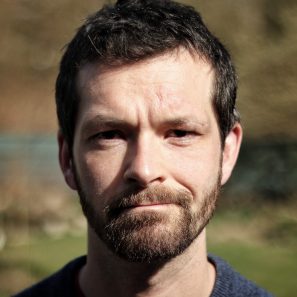
Dr Chris Worth
Paediatric endocrinology registrar
Chris is a paediatric endocrinology registrar in Manchester. He has an interest in technology and congenital hyperinsulinism and recently completed a PhD combining these two topics. Chris is generally angry about how hard it is for trainees to get involved with research and thus holds national roles in the NIHR and RCPCH to try and improve the situation. He also co-chairs a regional trainee research network in the North West, designed to help trainees at all stages of their research journey. When not at work, Chris is to be found running up and down muddy hills in the rain with a soggy map.
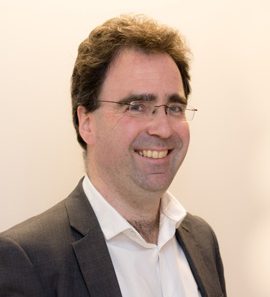
Professor Will Carroll
Children's doctor
Professor Will Carroll is a children's doctor working in the Midlands region of the UK. He has a particular interest in childhood asthma and teaching. He is probably best known as the co-editor of the Illustrated Textbook of Paediatrics, which is widely used by medical students around the world, but has written six paediatric textbooks in total aimed at paediatricians at every stage of their training. He is Editor-in-Chief of the Elsevier journal Paediatrics and Child Health. He is currently the Director of Postgraduate Medical and Dental Education at the University Hospital of the North Midlands and the Joint Officer for Research for the Royal College of Paediatrics and Child Health. He is chair of the Effective Preventative Medicines Group for the NHS England Children's and Young Persons National Asthma Bundle. He still wonders how he ended up even partially successful, and attributes 99% to luck and the rest to good fortune.

Dr Vanessa Poustie
Dr Vanessa Poustie is based within the University of Liverpool and has a senior management role within the NIHR Clinical Research Network (CRN) Coordinating Centre, heading up the coordination of a number of Clinical Specialty Groups including Children, Infection, Reproductive Health and Childbirth, and Ophthalmology, and having oversight of the Associate Principal Investigator Scheme. She has worked within the NIHR since its inception, having established and led the management of the internationally-renowned NIHR Medicines for Children Research Network (MCRN) from 2005 to 2015. Prior to her role within the NIHR, Vanessa coordinated a multicentre clinical trial of oral energy supplements for children with cystic fibrosis, building on her previous role as a paediatric dietitian.

Dr Hannah Cooney
Community child health subspecialty trainee
Hannah Cooney is a community child health subspecialty trainee in Thames Valley region, until recently training within the West Midlands, and co-chair of Paediatric Research Across the Midlands (PRAM), the West Midlands regional trainee-led research network. Alongside community paediatrics, her interests include training and education.

Dr Tim van Hasselt
Neonatal subspecialty trainee
Tim van Hasselt is a neonatal subspecialty trainee in the West Midlands, and the other co-chair of PRAM. Tim is currently out of programme undertaking a PhD as part of an NIHR Doctoral Research Fellowship at the University of Leicester.

Dr Thiloka Ratnaike
Academic Clinical Lecturer in Paediatrics
Dr Thiloka Ratnaike is currently working as an Academic Clinical Lecturer in Paediatrics for the University of Cambridge. She works in Colchester Hospital as a Paediatric ST5 registrar while balancing life as an academic. Thiloka is committed to her goal of streamlining the diagnostic process for patients with mitochondrial diseases globally, under the guidance of Professor Patrick Chinnery and Professor Rita Horvath. She is also working, under the guidance of Professor David Rowitch, on a new project that aims to
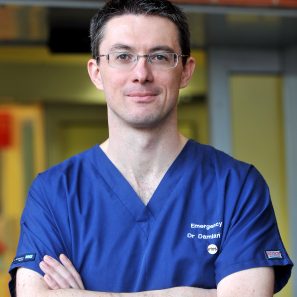
Professor Damian Roland
Paediatric Emergency Medicine clinician
Professor Damian Roland is an experienced Paediatric Emergency Medicine clinician who is passionate about improving the care of the ill and injured child.
He has internationally recognised expertise in the creation and evaluation of interventions (including education) to improve the differentiation of well from deteriorating children in emergency and acute care settings. Previously he has developed the Paediatric Observation Priority Score (POPS), now available as an app. He is currently clinical lead for the NHS England National Paediatric Early Warning System.
He has a strong interest in Social Media as a means of Knowledge Translation using the twitter account @damian_roland and blog http://rolobotrambles.com.
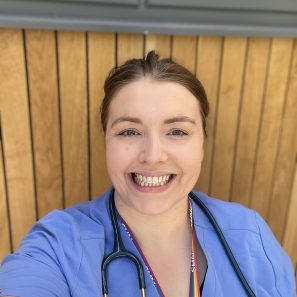
Dr Eva Wooding
Co-chair of the national RCPCH Trainee Research Network (TRN) and Chair of the South West Peninsula regional TRN, PenTRAINdoctor
Eva is Co-chair of the national RCPCH Trainee Research Network (TRN) and Chair of the South West Peninsula regional TRN, PenTRAIN. She works as an academic paediatric trainee at the Royal Devon University Hospital and at the MRC Centre for Medical Mycology at the University of Exeter. She has a Masters in Clinical Education and tutors in postgraduate and undergraduate evidence based healthcare, encouraging healthcare professionals to inform their practice using the best available evidence. She is an advocate for trainee-led research and passionate about building research skills and capacity amongst the child health workforce.
X: @paedsdr

Dr Michelle D’Souza
Paediatric trainee in North West London and honorary clinical fellow at Imperial College London
Michelle is a paediatric trainee in North West London and honorary clinical fellow at Imperial College London. She recently investigated the barriers to participating in research during paediatric training and is keen to address these with the support of local and national research networks.
As of 1st September 2016 the Revalidation and CPD team of the Royal College of Paediatrics and Child Health no longer allocates a number CPD credits to courses or events. The removal of credits associated with events allows delegates to record the educational benefit of the activity through written reflection, in contrast to quantifying the significance based on the time duration of the course. This is in accordance with changes made to the CPD Scheme guidelines published in April 2016.
Detailed information and scheme guidance can be found on the RCPCH website
When recording the activity, delegates should focus on the reflection and detail the following:
- What did you learn?
- What effect has/will the learning had/have on your current practice?
- What further learning or action, if any, is needed as a result of the original learning activity?
Should you have any questions regarding the removal of credits, please feel free to contact the CPD team
If you use the RCPCH CPD Diary, you can click here to visit the diary and record your learning: Log your learning on the RCPCH CPD Diary
Related courses
-

Systematic reviews
Welcome to this online training which describes the key stages and considerations of carrying out a systematic review. It will give you an overview of conducting systematic reviews in any subject area, with specific reference to children and young people where appropriate.
Found an issue? Please get in touch with us:
Email us at rcpchlearning@rcpch.ac.uk
